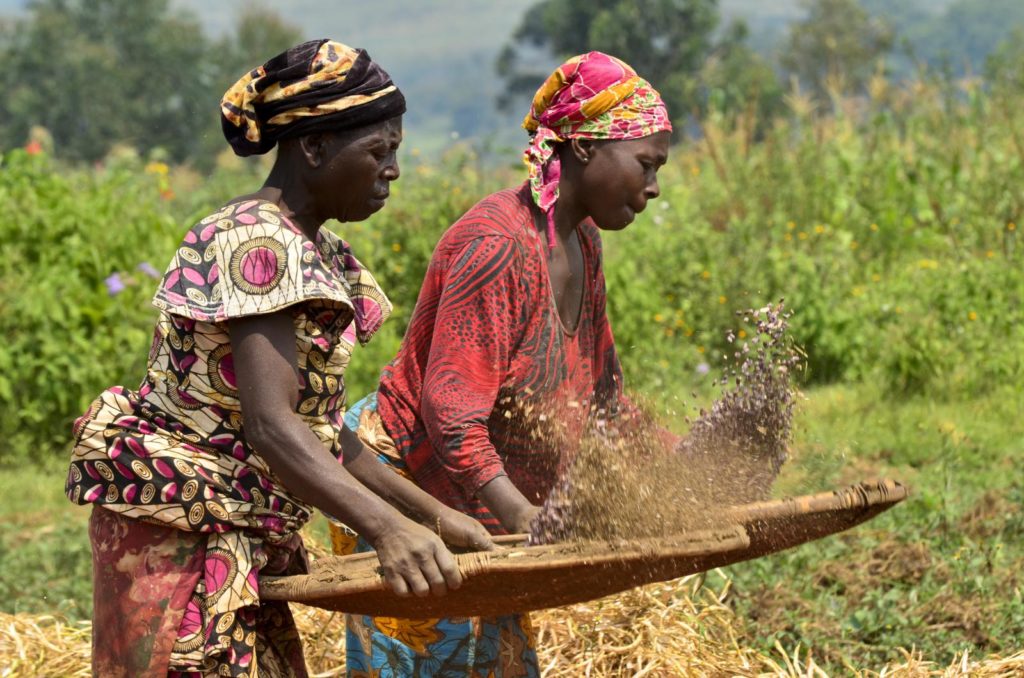
On International Women’s Day, celebrated annually on March 8, IFDC recognizes the immense contributions that African women have made to agriculture while also highlighting the unique challenges they face.
Women play a vital role in African agricultural development—they make up more than half of the continent’s agricultural workforce. Despite this, women in agriculture often are overlooked, and their contributions are not adequately recognized or rewarded.
African women are the backbone of small-scale agriculture. They are responsible for planting and harvesting crops, tending to livestock, managing other aspects of the farm, and providing household income. Women are often expected to handle these responsibilities while caring for children and other family members. Yet they face several obstacles that prevent them from achieving their full potential, including limited access to financial services, education, land, and technology, which inhibits their ability to make the most of their agricultural work.
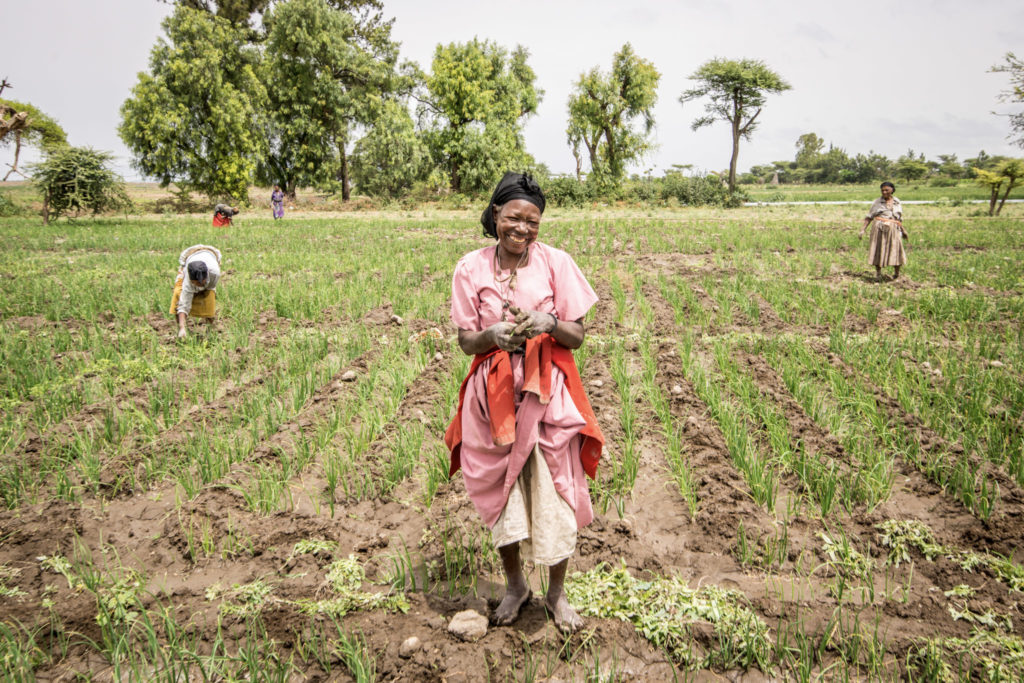
In addition, women face cultural and social barriers, such as unequal inheritance rights and limited decision-making power. These challenges make it difficult for women to increase their productivity and income.
According to UN Women, “Rural women play a key role in supporting their households and communities in achieving food and nutrition security, generating income, and improving rural livelihoods and overall well-being.”
Thus, on International Women’s Day, it is important to recognize the critical role of African women in agriculture and to take action to ensure that their voices are heard. Here are some actions you can take to support African women in agriculture:
- Endorse women-led initiatives in the agriculture sector.
- Host or attend annual award ceremonies that recognize outstanding African women in agriculture.
- Provide training and resources specifically tailored to African women in agriculture, allowing them to strengthen their knowledge and capacity.
- Create scholarships and fellowships specifically for women in Africa’s agriculture sector.
- Establish mentorship programs that connect experienced African women in agriculture with aspiring African female agriculturalists.
- Raise awareness of African women’s contributions to the sector through media campaigns and public events.
- Advocate for policy changes that recognize and prioritize the unique needs of African women in agriculture.
- Establish partnerships with universities, research centers, and other institutions to empower the women that power African agriculture.
- Invest in innovative technologies and infrastructure specifically designed to support females in the African agriculture sector.
IFDC actively supports the women of Africa’s agriculture sector and, with them, strengthens agricultural development on the continent. Meet a few of the women that have improved their livelihoods after participating in knowledge-sharing or capacity-building interventions from IFDC.
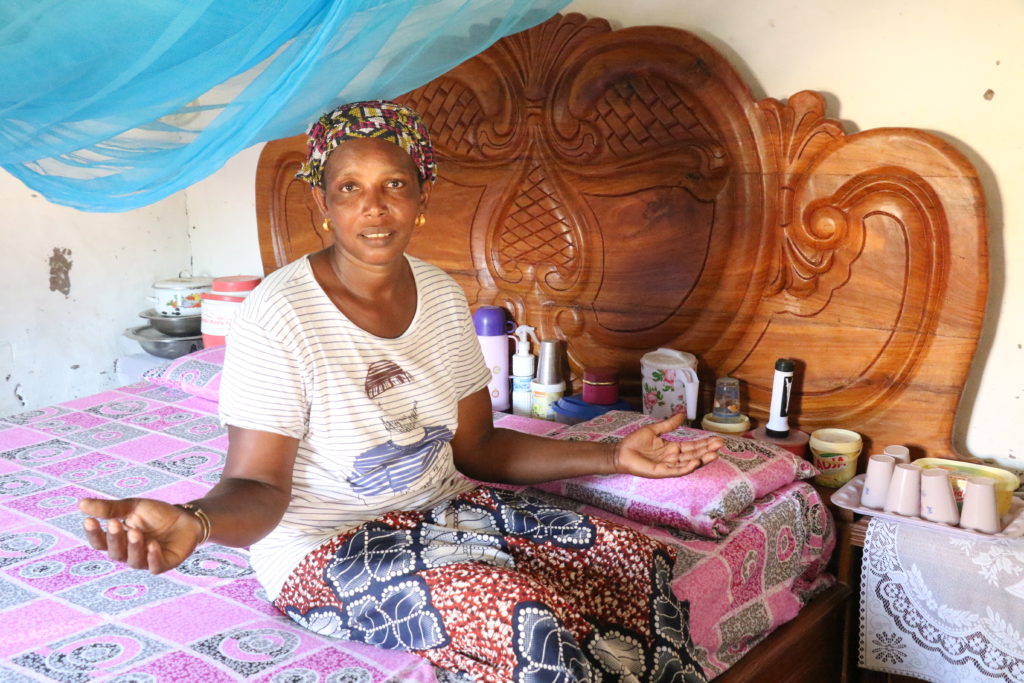
“I harvested a very successful tomato crop. With the money earned from the sale of tomatoes alone, I was able to pay for health care for one of my daughters who was seriously ill.”
Halimatou Kandé, mother of five, is a small-scale producer in southern Senegal. Before her interaction with the Dundël Suuf project, Halimatou was unable to pay her children’s school fees or medical bills.
After receiving training from the Dundël Suuf project, Halimatou brought microdosing technology to her farm and saw immediate results—without spending a lot of money, she could feed her crops with a targeted dose of fertilizer. Her agricultural productivity growth resulted in a significant boost to her family’s income. With the additional money, Halimatou has been able to purchase furniture for her home, send her children to school, and provide necessary medical care for her family.
“I am proud of myself for being the first female cabbage farmer in my community, and more importantly, I am happy about the knowledge I have acquired. I can see the impact on the crops on my farm. Now, my daughter is looking forward to starting her cabbage farm in the dry season.”
Saudatu Yakubu is a 29-year-old female smallholder farmer in Nigeria. Although Saudatu has been farming for over 10 years, she has always had low yields on her rice farm due to the traditional farming practices she applied.
Through a week-long sensitization campaign that supported over 23 female smallholder farmers in Nigeria, the HortiNigeria program trained women on best practices for fertilizer application, crop-specific fertilizer blends, and how to achieve optimum crop yields.
Once Saudatu completed the training, she ventured into cabbage farming. Her application of the knowledge she gained on good agricultural practices, as well as simple climate-smart actions introduced to her through the program, resulted in healthier plants and higher yields. Consequently, Saudatu’s farm has made good agricultural practices more attractive to other farmers in her community, especially women, and significantly increased the amount of food and income she has to support her family.
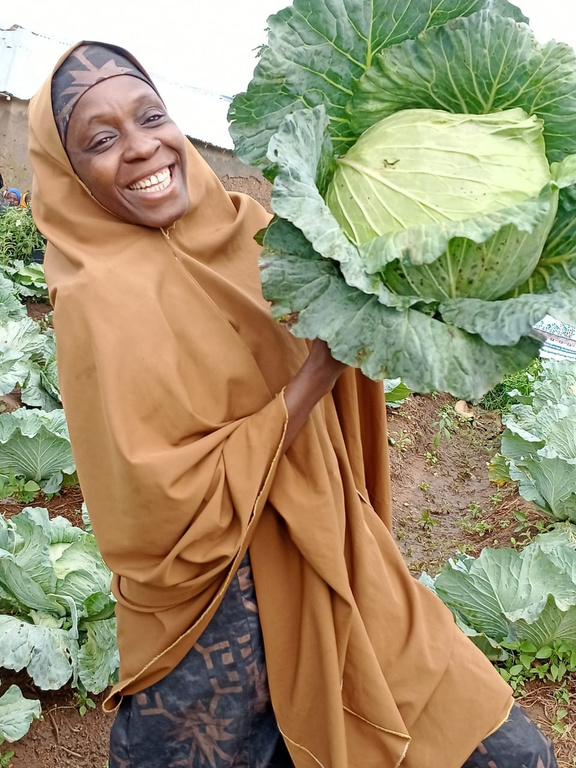
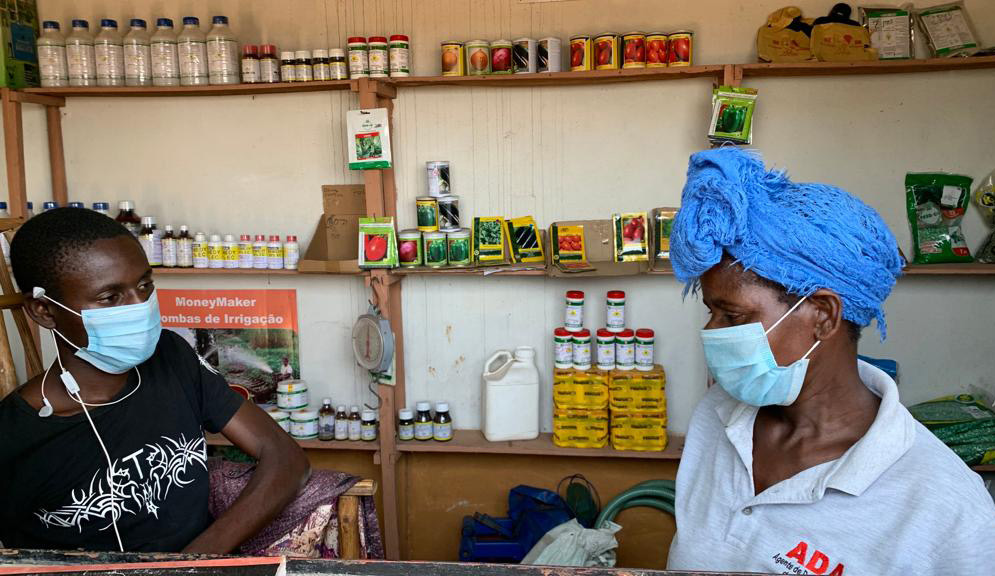
Flora Andre Sango is a successful agro-dealer based in Nhamatanda, Mozambique.
She received training in business management, technical knowledge, marketing, access to finance, and integration into input suppliers’ distribution networks through consignment credit, all through the Transfer Efficient Agricultural Technologies through Market Systems (TEAMS) program.
Flora’s availability and professionalism have made her popular in her village. A constant flow of customers circulates through her shop to buy her products and receive advice and information on vegetable production and marketing.
She shared that local farmers are no longer forced to travel to Sofala Province to purchase seed and the information on soil fertility, climate change, and fertilizer application also help to ensure good growth rates.
“I have observed a significant transformation from what I used to do. I now understand the need to conduct soil testing and apply the right fertilizers. I have seen improved productivity and gradual growth in profits.”
Margaret Wangui is a potato producer in Nyandarua County, Kenya. For many years, Nyandarua was known as Kenya’s food basket. Farms were productive, and rains were adequate, resulting in high surplus production.
Today, Kenya’s production levels are deteriorating. Deforestation, monocropping, soil infertility, excessive subdivision of seed, use of poor or recycled seeds, pests and diseases, a prolonged dry season, and poorly timed plantings have contributed to the yield decline that many Kenyan farmers, including Margaret, have experienced.
The Potato Value Chain Capacity Building (PCB) project has been addressing these issues through the Farmer Field Business School (FFBS) approach. The FFBS promotes sustainable agricultural practices, market engagement, gender and youth equity, food and nutrition security, group empowerment, and monitoring and evaluation.
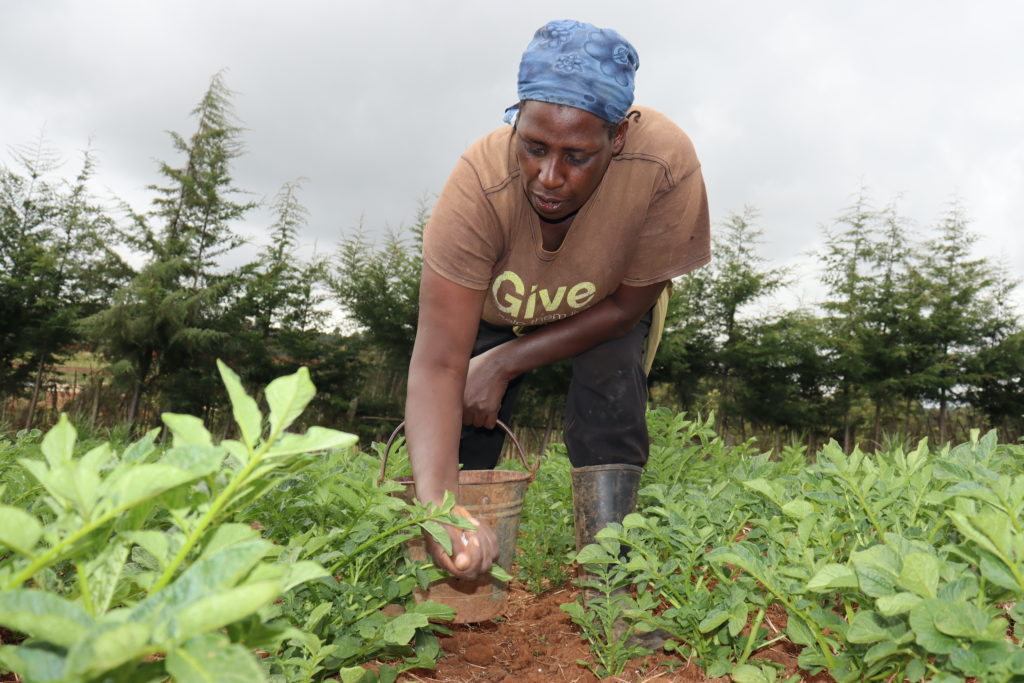
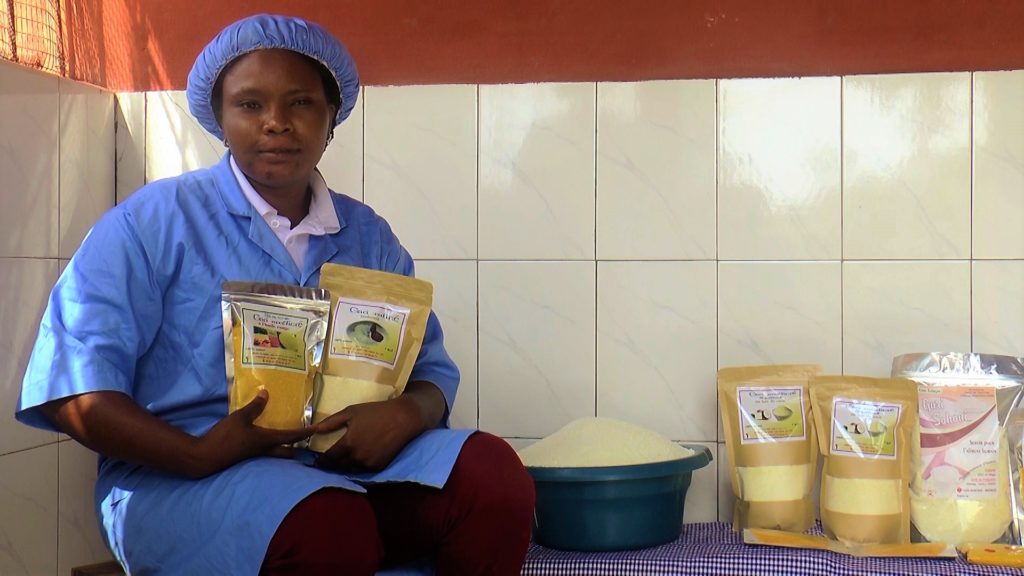
“I have significantly improved both my professional capacity and my mastery of my activity. I can easily integrate the processing of cassava into gari with caring for livestock, market gardening, and cassava cultivation.”
Sisso Afi Pélagie, a young Beninese woman, obtained her diploma in Tropical Agricultural Studies in 2016 at the Bernadette Sohoudji Agbossou Agricultural Technical High School in Adjahonmey, Couffo Department. Thanks to her dynamism and commitment, Pélagie has distinguished herself in the cassava processing sector.
With support from the second phase of the Communal Approach to the Agricultural Market in Benin (ACMA2) program, which is now in phase three (ACMA3), Pélagie received training in business management, good agricultural practices, manufacturing techniques for cassava products, quality standards, marketing, and branding.
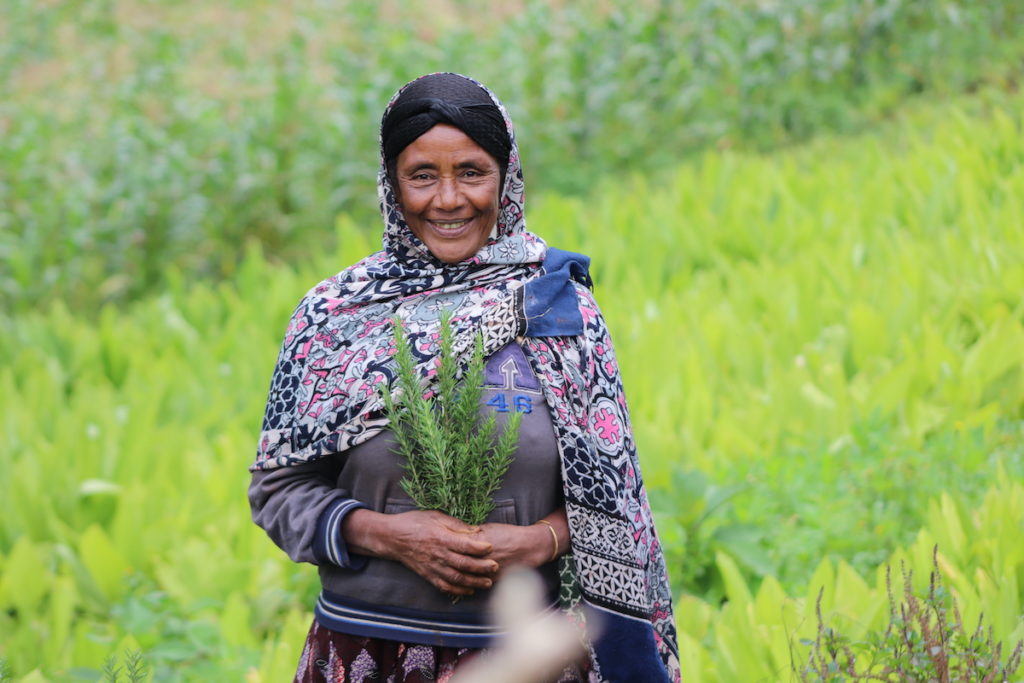
“We gained skills and knowledge on commercial spice and herb production, and this changed our perceptions. Currently, we have planted basil, ginger, rue, turmeric, lavender, lemon verbena, rosemary, and koseret. In 2020, we saved some of the profits from the sales of our produce and used the rest to buy furniture and a water tank to collect rainwater. We are happy to reap the benefits from these crops and, most importantly, to learn about the nutritional and economic benefits.”
For many years, 43-year-old Worknesh Wisenbet has farmed rosemary and rue on her 0.5 hectare backyard farm solely for household consumption. However, through the 2SCALE Damascene partnership in Ethiopia, she started commercial farming and diversified production.
Damascene Essential Oil Processing PLC is a woman-led SME business working in the spice and herb sub-sector in Ethiopia. The business aims to increase its revenue with spices, essential oils, and natural beauty care products through inclusive business development.
For almost 50 years, IFDC has worked with smallholder farmers to develop agriculture from the ground up. By sharing knowledge, building capacities, and improving women’s access to resources, IFDC works to promote gender parity and women’s economic empowerment on the African content. Halimatou, Saudatu, Flora, Margaret, Sisso, and Worknesh are just a few of the women who have benefited—and we celebrate them. African women are undeniably crucial for the continent’s agricultural development.




